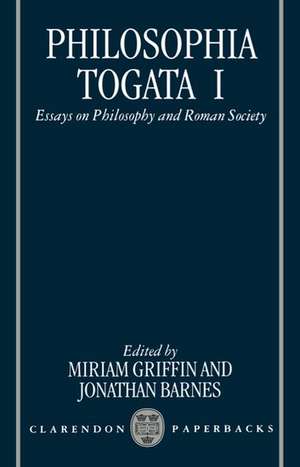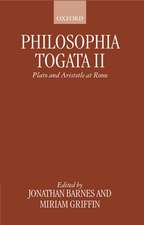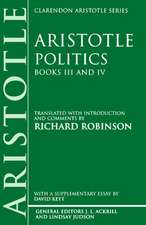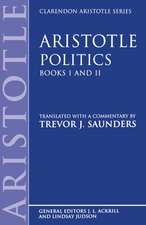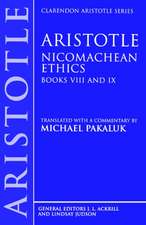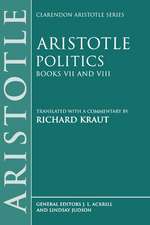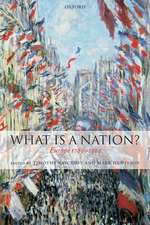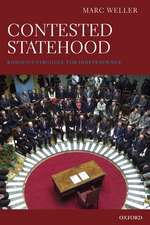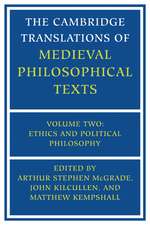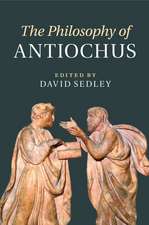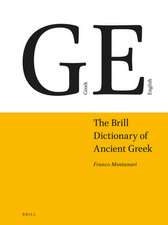Philosophia Togata I: Essays on Philosophy and Roman Society
Editat de Miriam Griffin, Jonathan Barnesen Limba Engleză Paperback – 2 ian 1997
Preț: 549.71 lei
Preț vechi: 832.93 lei
-34% Nou
105.20€ • 114.23$ • 88.37£
Carte tipărită la comandă
Livrare economică 11-17 aprilie
Specificații
ISBN-10: 0198150857
Pagini: 316
Dimensiuni: 137 x 217 x 18 mm
Greutate: 0.41 kg
Ediția:Revised
Editura: OUP OXFORD
Colecția OUP Oxford
Locul publicării:Oxford, United Kingdom
Descriere
The mutual interaction of philosophy and Roman political and cultural life has aroused more and more interest in recent years among students of classical literature, Roman history, and ancient philosophy. In this volume, which gathers together some of the papers originally delivered at the seminar on Philosophy and Roman Society in the University of Oxford, scholars from all three disciplines investigate this interaction in the late Republic and early Empire, withparticular emphasis on the first century BC which can be seen as the formative period. The book contains chapters on such key figures as Posidonius, Antiochus of Ascalon, Philodemus, Lucretius, Cicero, and Plutarch, as well as general essays on `Philosophy, Politics, and Politicians at Rome', and `Roman Rulers and the Philosophic Adviser'. There is also an analytical bibliography.
Cuprins
M. Griffin: Philosophy, politics, and politicians at Rome; I. G. Kidd: Posidonius as Philosopher-Historian; J. Barnes: Antiochus of Ascalon; D. Sedley: Philosophical allegiance in the Greco-Roman world; D. P. Fowler: Lucretius and politics; J. Annas: Cicero on stoic moral philosophy and private property; P. A. Brunt: Philosophy and religion in the late republic; C. Pelling: Plutarch: Roman heroes and Greek culture; E. Rawson: Roman rulers and the philosophicadviser
Recenzii
`the whole collection is of the highest quality, very approachable, and constitutes an invaluable contribution to the long-overdue exploration of an important but neglected area'Greece & Rome Vol XXXVII No 1 Apr 1990
`Of the scholarly quality of these papers, selected from a series of Oxford seminars, the list of contributors is sufficient guarantee. They are besides pleasant to read, often witty ... attractive volume.'A.E. Douglas, University of Birmingham, Classical Review
`Nicely produced, with a briefly annotated bibliography and a helpful set of indices, the book contains plenty of things that have not been said before; saying them will save others the trouble of doing so'.Catherine Osborne, Journal of Roman Studies.
`This anthology contains a variety of fine papers.'Lee T. Pearcy, The Episcopal Academy, Merion, PA, Classical World
an admirable study which adds an extra dimension to our understanding of the continuing importance of philosophy and the Greeks in the ever-changing context of the Roman world.
Textul de pe ultima copertă
In this volume scholars from all three disciplines investigate the interaction of philosophy and Roman political and cultural life in the late Republic and early Empire, with particular emphasis on the first century BC which can be seen as the formative period.
